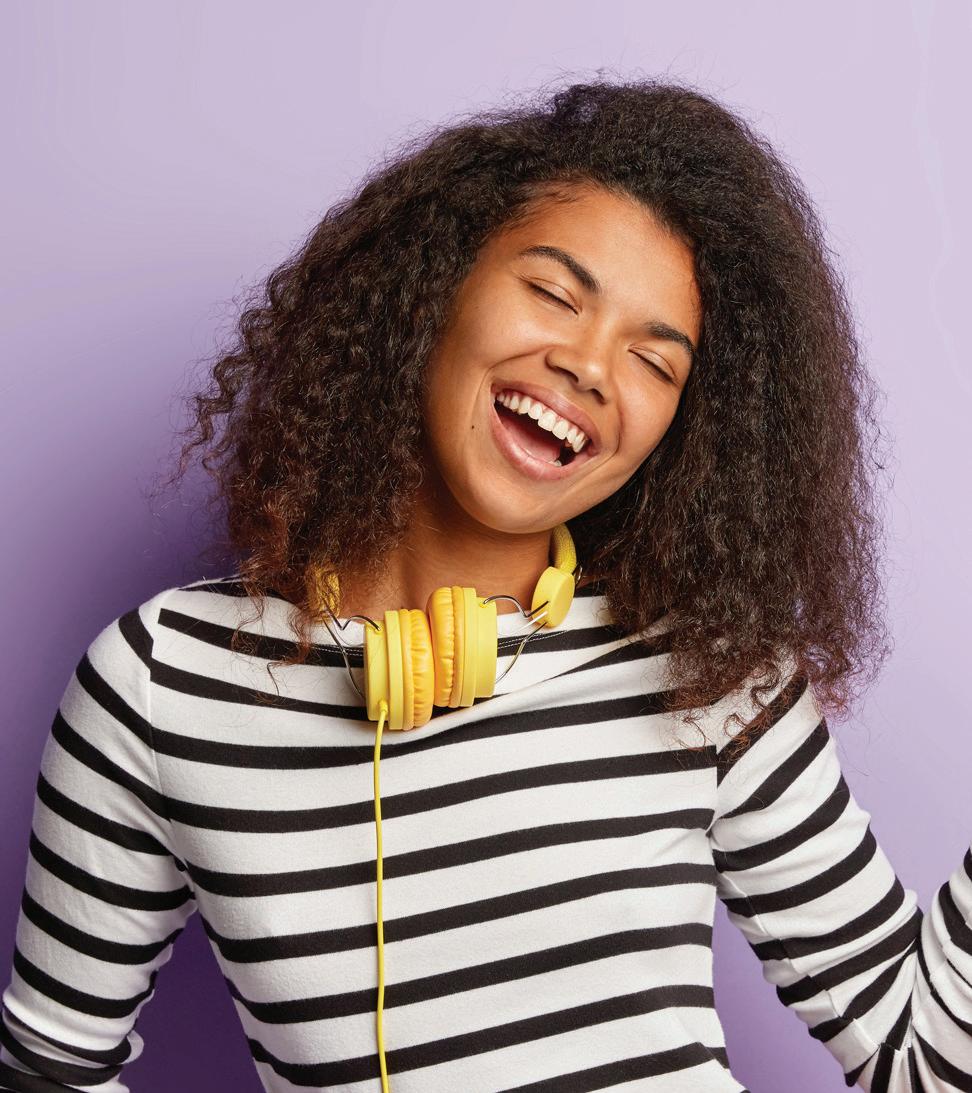
3 minute read
SONGS FOR LIFE
from The Eagle


Advertisement



Ever had that stadium feeling when you hear a song – one that you can feel from your toes up? Music can empower you to do great things. But not all songs have the same effect.
In a 2014 study, conducted by Dennis Hsu of the Kellogg School of Management at Northwestern University, looked at this phenomenon. He and his team watched how athletes use music to prepare themselves for the game ahead. “The ways these athletes immerse themselves in the music – some with their eyes steely shut and some gently nodding along with the beats – seem as if the music is mentally preparing and toughening them up for the competition about to occur,” he shared at the time of the study, The Music of Power: Perceptual and Behavioral Consequences of Powerful Music, published in Social Psychology and Personality Science.
Songs for Life
continued from page 34
Hsu focused on how music can transform the psychological state of the listener, providing a positive and motivational influence. The research discovered that high-power music evokes a sense of power subconsciously and it’s not necessarily due to the lyrics. Hsu found that listening to high-power music heavy on the bass (think Queen’s We Are the Champions), when you need that little extra push, can lead to more desirable outcomes when it comes to job interviews, social perceptions, negotiations and even employee performance. “People might want to explore whether pumping up their favourite tunes can quickly ease them into an empowered mental state before going into a first date, an important client meeting, or a job interview,” he says. More recent research conducted in early 2020 by UC Berkeley scientists, found that the subjective experience of music across cultures can be tracked over as many as 13 emotions, including amusement, joy, eroticism, beauty, relaxation, sadness, triumph, anxiety, scariness, annoyance, defiance and feeling pumped up. This is across music genres, including rock, folk, jazz, classical, marching band, experimental and heavy metal. Alan Cowen, a UC Berkeley doctoral student in neuroscience who led the study commented at the time: “Music is an universal language but we don’t always pay enough attention to what it’s saying and how it’s being understood.” Back in 2015, a music-loving Dutch neurologist, Dr Jacob Jolij, researched what qualifies as the most mood-boosting tunes. Jolij commented that music is personal and usually depends on social contexts and your own associations, however, mood-boosting songs are faster than your average song (usually between 140 to 150 beats per minute), written in a major key and focus on happy events or complete nonsense.
- Alan Cowen Based on this, Jolij created a formula to find the happiest songs:

1. Don’t Stop Me Now – Queen 2. Dancing Queen – Abba
3. Good Vibrations – The Beach Boys 4. Uptown Girl – Billie Joel 5. Eye of the Tiger – Survivor 6. I’m A Believer – The Monkees 7. Girls Just Wanna Have Fun – Cyndi Lauper 8. Livin’ On A Prayer – Jon Bon Jovi 9. I Will Survive – Gloria Gaynor 10. Walking on Sunshine – Katrina and the Waves








